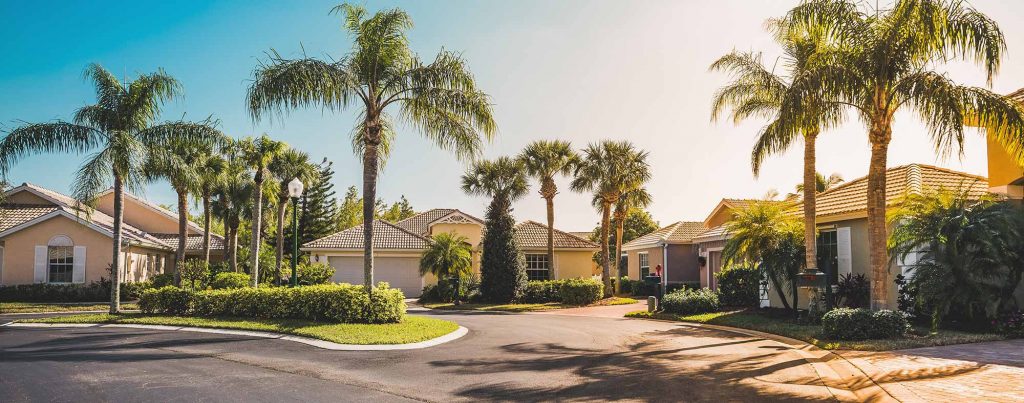Chances are that over the past few years, you’ve been hearing about smart technology more and more. What was once worthy of “home of the future” installations is now completely attainable for regular homeowners.
But are you ready to upgrade to a smart home? There are numerous aspects to take into consideration, from the actual devices you want to upgrade to, cost of ownership, whether it’s possible to support them in your area, depending on your internet coverage, and even compatibility between devices. Here are some of the things you should be thinking about before determining whether your home is ready for a smart upgrade.

Do You Know What You Want To Upgrade?
First thing’s first – let’s look at what you may want to upgrade. Like everything else, smart tech goes through trends and waves, but some devices are always more useful, more fun, or overall, more popular than others. They fall into three major categories:
- Convenience & entertainment – This is the most “fun” category by far, and one where a lot of devices tend to pop up every year. There is always a new fad for smart entertainment, because we’re all lovers of convenience.
Devices like smart TVs, smart speakers, and smart home assistants are particularly popular, because the cost threshold is lower, so it’s easier for anyone add smart tech in this category. And who doesn’t want to control their TV on their phone, instead of fighting over the remote?
Let’s say you want to dim the lights – wouldn’t you rather tap your phone than get off your couch to do it? Of course, the devices in this category tend to be non-essential, so it’s understandable if you don’t want to start here.
- Security & control – Another very widespread use of smart technology is among security systems and devices. If you’re going to invest in smart tech and don’t know what to get, this is a great place to start, because it provides a very real advantage.
Smart doorbells, motion sensor cameras, smart door locks and alarms all work to make your home more safe and secure. Whether it’s sending you a phone alert when it detects movement outside your door or allowing you to tune into a live feed captured in front of your home, smart technology is doing a lot to help homeowners feel safer.
In fact, in a few years, we might live to see keys become obsolete as a concept, as door codes, QR codes, and retina scans become commonplace. Spy movie technology is finally creeping into our homes.
- Comfort & environment – This category is huge among “smart” homeowners, because of the sheer variety of devices and their time-saving and comfort-ensuring qualities.
If you’re looking for “home of the future” devices, then you’re probably looking at smart blinds that open automatically, automated windows, smart heating and cooling systems, and even devices that do chores for you, like smart lawn mowers and sprinklers.
This category continues to innovate year after year, and this is where you are more likely to see flashy devices, but they also tend to be more expensive.
Can You Afford It?
The biggest consideration, before investing in smart tech for your home, is determining whether or not you can afford it. Smart devices are undoubtedly useful, but they are also notoriously expensive. There’s a reason why not every home is equipped with smart appliances, and that’s because the upfront investment is significant, and not everyone can afford it.
That being said, there are some other aspects to take into consideration. First of all, a lot of smart devices and technology end up being cost-saving upgrades, in the long-run. Smart heating and cooling tech alone can save you hundreds of dollars a year by optimizing your environment for comfort at all times. The same goes for smart lightbulbs, which can go a long way towards savings on your electric bill.
There’s also the fact that not all smart tech is created equal or is equally expensive. Yes, a smart fridge is likely to be prohibitively expensive for a lot of households, but smaller, super convenient devices like smart doorbells and smart speakers are present in an increasingly large number of homes, especially among Millennial homeowners. Demand for smart tech is also on the rise, at every income level.
Can Your Network Take It?
A lesser-known aspect buyers often overlook is the well-functioning and maintenance of your smart tech and what it takes to keep it working at optimum efficiency. Smart technology relies heavily on a strong, reliable internet connection, so that should be the first step in your upgrade plan.
Fiber internet is often recommended because of the reliable speed, and your smart devices also require bandwidth; more than you may need for regular household use, like checking emails or scrolling through social media.
Different devices will have different bandwidth requirements, so make sure to check before making your upgrades. A lot of devices will work perfectly with 5 Mbps, while you may need that same amount for smart cameras, alone, for example.
Are Your Devices Compatible?
Let’s talk about device compatibility – if you’re planning on upgrading to more than one smart device, then you need to consider compatibility between devices and how well they’re going to work together. You want them to complement each other, so picking out devices from the same manufacturer is a safe bet. That means controls and the overall infrastructure are similar and thus, easier to navigate.
Otherwise, it’s a good idea to look into what devices are generally compatible with what you already own or what you’re planning to purchase. You can find guides detailing compatibility with Google products, for example, since they’re very popular among buyers.

Final thoughts
Smart tech has been on the rise in recent years, and the real estate market is reflecting that. More and more homeowners and home buyers are looking to make some smart upgrades – but is your home ready for it?
Not all homes and lifestyles suit the same smart tech, and even if you know exactly what devices you want, there is still the issue of affordability, long-term costs vs. rewards, as well as maintenance and compatibility with your other devices.
Even if it’s not as simple as just clicking “add to cart” and installing upon arrival, smart home upgrades are generally worth it, not just for the comfort, convenience, or security they offer, but also because they are very desirable by home buyers.
